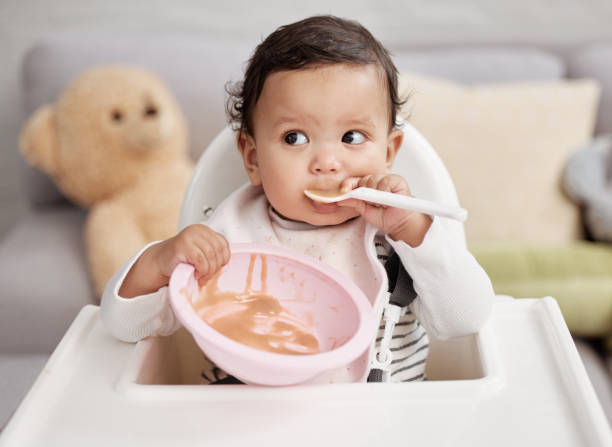Introducing solid foods to your baby is a significant milestone, and knowing the best age to start can set the foundation for healthy eating habits. This guide will help you understand when and how to begin this exciting phase.
Why Timing Matters
The age at which you introduce solid foods can impact your baby's nutrition, development, and eating habits. Starting too early or too late can pose risks, so it's crucial to get the timing right.
When to Start: The General Recommendation
The World Health Organization (WHO) and the American Academy of Pediatrics (AAP) recommend introducing solid foods at around 6 months of age. At this point, most babies are developmentally ready and their digestive systems are mature enough to handle solid foods.

Signs Your Baby Is Ready
While the 6-month mark is a general guideline, it's essential to look for individual readiness signs in your baby:
- Sitting Up with Support: Your baby should be able to sit upright with minimal assistance, ensuring they can swallow food properly.
- Good Head Control: Steady head and neck control is crucial for safe swallowing.
- Interest in Food: If your baby watches you eat, reaches for your food, or opens their mouth when food approaches, they might be ready to start solids.
- Loss of Tongue Thrust Reflex: Babies are born with a reflex that causes them to push their tongue out when something enters their mouth. By around 6 months, this reflex diminishes, making it easier for them to eat solid foods.

Nutritional Needs
Around 6 months, a baby's iron stores, which were built up during pregnancy, begin to deplete. Introducing iron-rich foods like pureed meats, fortified cereals, and legumes can help maintain healthy iron levels.
How to Start
- Choose the Right Foods: Start with single-ingredient purees to identify any potential allergies. Good options include iron-fortified baby cereals, pureed vegetables, fruits, and meats.

- Introduce One Food at a Time: Wait 3-5 days before introducing a new food to monitor for any allergic reactions.

- Start with Small Amounts: Begin with a teaspoon of food and gradually increase the quantity as your baby gets accustomed to eating solids.

- Maintain Breastfeeding or Formula: Continue breastfeeding or formula feeding, as solid foods are complementary and should not replace milk as the primary source of nutrition until around 12 months.

Foods to Avoid
Certain foods should be avoided when starting solids:
- Honey: Risk of botulism in babies under 1 year old.
- Cow's Milk: Not recommended as a drink until after the first year.
- Choking Hazards: Avoid hard, small, and round foods like nuts, grapes, and popcorn.
Common Concerns
- Allergies: Introduce allergenic foods like peanuts, eggs, and fish early but carefully, as studies suggest this may reduce the risk of developing allergies.
- Texture Progression: Gradually move from purees to more textured foods as your baby develops chewing skills.
